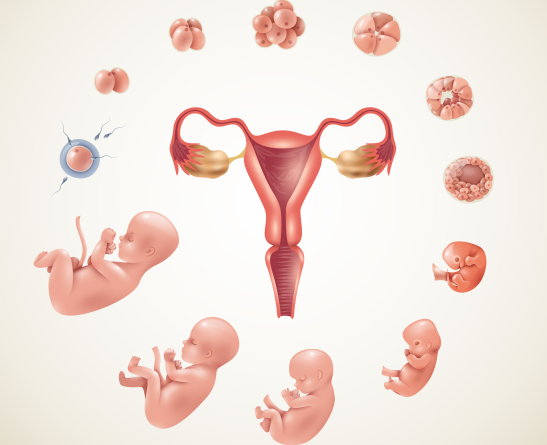Implantation Pregnancy: Signs and Symptoms
Implantation pregnancy marks a crucial phase in a woman’s journey toward motherhood. It is during this delicate process that a fertilized egg attaches itself to the uterine lining, initiating the formation of the placenta and the start of pregnancy. Understanding the signs and symptoms of implantation is essential for prospective mothers to recognize the early stages of pregnancy and seek appropriate care. In this comprehensive guide, we delve into the intricate details of implantation pregnancy, shedding light on the key signs and symptoms that women may experience during this transformative period.
The Implantation Process
Implantation is a critical step in the early stages of pregnancy. After fertilization, the embryo begins its journey from the fallopian tube to the uterus. Once it reaches the uterus, the embryo seeks a suitable spot within the uterine lining to attach itself. This attachment is facilitated by the trophoblast, a specialized outer layer of cells in the embryo that plays a pivotal role in establishing a connection with the maternal blood supply.
Signs of Implantation Pregnancy
Implantation Pregnancy, while implantation is a microscopic event, some women may experience subtle changes in their bodies as a result. It’s important to note that not every woman will notice these signs and their presence does not guarantee a pregnancy. However, being aware of potential signs can help individuals gauge their reproductive health and take timely action.
1. Implantation Bleeding
Implantation bleeding is often regarded as one of the most characteristic signs of early pregnancy. This light spotting occurs when the embryo burrows into the uterine lining, causing minor blood vessels to rupture. The bleeding is typically much lighter and shorter in duration compared to a regular menstrual period. It may appear as pink or brown discharge and may occur around the time a woman expects her menstrual period.
2. Changes in Cervical Mucus
The consistency and appearance of cervical mucus can provide valuable insights into a woman’s fertility and potential pregnancy. After fertilization, hormonal changes can lead to increased cervical mucus production. Some women may notice that their cervical mucus becomes thicker, clearer, and more abundant than usual.
3. Breast Sensitivity and Changes
Hormonal fluctuations during implantation pregnancy can also affect the breasts. Some women may experience heightened breast sensitivity, tenderness, or swelling. These changes are often attributed to rising levels of the hormone progesterone.
4. Mild Cramping
Implantation can cause mild uterine contractions, which may result in slight abdominal cramping. These cramps are usually different from menstrual cramps, being milder and occurring at irregular intervals.
5. Changes in Basal Body Temperature
Tracking basal body temperature (BBT) is a common practice for those trying to conceive. Following ovulation, a sustained increase in BBT can indicate successful implantation and the beginning of pregnancy.
6. Heightened Sense of Smell and Taste
Hormonal changes during implantation can lead to heightened senses of smell and taste. Some women may become more sensitive to certain odors and experience changes in their food preferences.
7. Fatigue and Mood Swings
Early pregnancy, including the implantation phase, is often accompanied by increased fatigue and mood swings. Hormonal fluctuations and the body’s energy redirection towards supporting the developing embryo can contribute to these symptoms.
8. Frequent Urination
Implantation Pregnancy, as the embryo implants and the pregnancy progresses, the body’s blood volume increases, leading to increased pressure on the bladder. This can result in more frequent trips to the restroom.
Implantation pregnancy is a crucial and fascinating phase in a woman’s reproductive journey. The signs and symptoms associated with implantation can vary from woman to woman and may not be experienced by all. Recognizing these early indications can empower individuals to take timely actions and seek proper medical care. If a woman suspects she might be pregnant based on these signs, taking a home pregnancy test or consulting a healthcare provider can provide clarity and support. As medical knowledge continues to advance, gaining a deeper understanding of implantation and its intricacies enhances our ability to support and celebrate the remarkable process of pregnancy.




